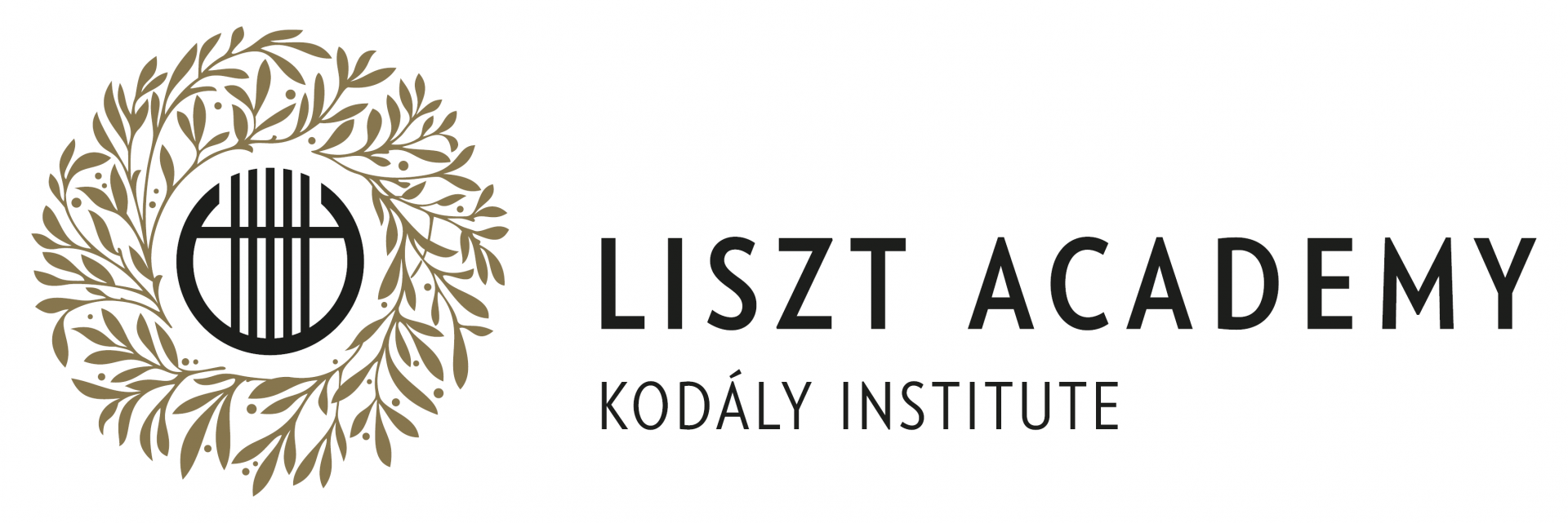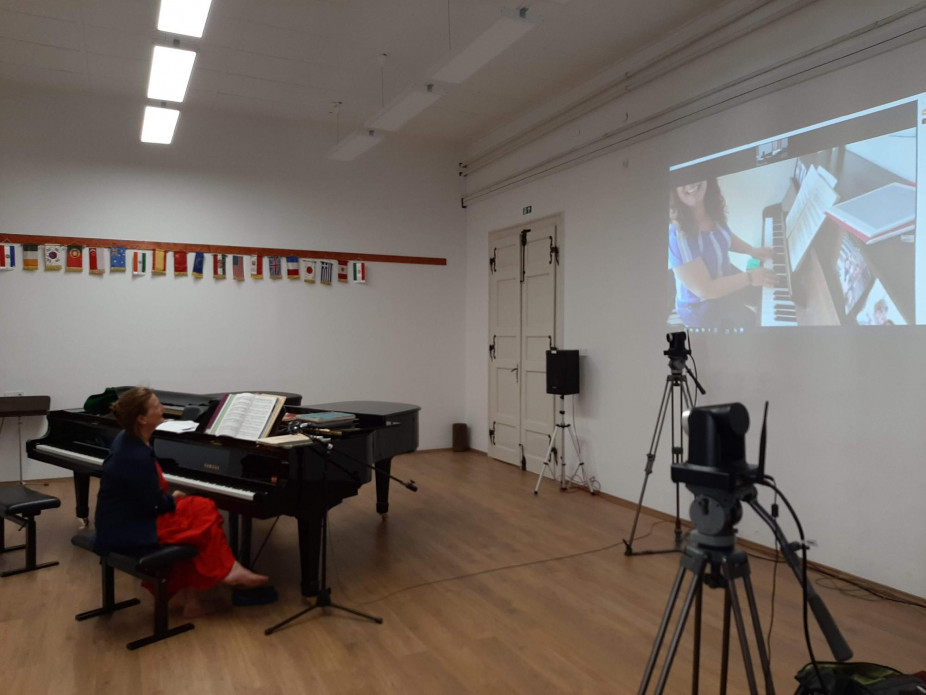Interview with the Director of the Institute
2020 was and still is a special year. It challenged us in many ways. We asked László Nobert Nemes, director of the Kodály Institute in Kecskemét, what their year looked like.
Q: Thank you for taking your time to answer these questions. This pandemic has affected two academic years so far. What happened in the previous academic year after the virus break out, how did you manage to finish the year?
László Nobert Nemes: We have so much to be proud of. We were able to finish all the exams, all our students were able to finish the school year in spite of the fact that Hungary similarly to other countries across the globe, shut down in mid March in order to slow down the spreading of the coronavirus. The commitment, creativity and devotion of our teachers helped us through the initial difficulties. Real community work has emerged through the various digital and online platforms. We have to note that despite the unusual setting, we also discovered certain advantages of online teaching, such as having more time to immerse, the freedom to set your own schedule, the chance of replaying and repeating lessons or tasks, etc. Of course, we were hoping that in September we would be able to sing together again.
Q: What about the Kodály Seminar? Were there many attendees; was it a success?
LNN: 2020 is a very important year in the history of the Kodály Institute. The first Summer Seminar was organised in Kecskemét in 1970, exactly 50 years ago, however, this year instead of celebrating this precious anniversary we had to switch the Seminar online. We managed to turn some of our classrooms into studios equipped with several cameras, microphones and wireless internet connection, so that the faculty was able to work from our home base and connect with the participants in a live remote setting. The Seminar attracted hundreds of participants who took part in Solfege, Methodology, Piano, Choral Music Education and Voice webinars. Some of them were repeated in order to accommodate participants from different time-zones. The seminar was oversubscribed, and we were able to attract students from exotic destinations, such as Cape Verde and The Philippines. We felt that the online connection helped us to reach out to people who we were not able to connect with before.

Q: What challenges did you have to face at the beginning of this school year?
LNN: We were, of course, very concerned that not many students would start the school year offline in September, but we were extremely happy to witness the opposite. Most of the students who applied for either the Diploma course or the graduate courses arrived to Kecskemét. So, we were able to start the school year, but we also gave opportunity for those students who did not arrive, to connect with us online. Certain courses were offered both online and offline, or in a blended way. Since mid-November all our courses are online in accordance with the pandemic regulations in Hungary.
We had a wonderful 2 months together with our students. We consider ourselves lucky that we could get to know them well. We have experienced over these past months, that it is much easier to work with students online if we already know them personally.
Q: What is the feedback from the students of the yearly courses and their teachers regarding online learning and teaching?
LNN: It is the general opinion of our students that the faculty adapted to the live remote learning situation relatively easily and made all students comfortable and confident about learning this way. We, musicians, are used to teaching live; and the personal connection, the creation, the nurturing environment are very important. In spite of the difficulties, the teachers managed to maintain close contact with the students, which really showed how much the teachers care about them. Some students marked that although they did not like the distant learning system, they could see the best effort and commitment of the teachers. Many teachers combined different ways of online learning in order it to be the most effective. We can say that it was also a general opinion of students, that the live courses cannot be fully replaced by their online versions especially when you have experienced what face-to-face teaching is like at the Kodály Institute.
Q: Did you have to change anything in the new academic year because of the COVID situation?
LNN: Yes, we did. As communal singing was not and is still not allowed, we had to cancel the choir and the vocal ensemble lessons. This was a great disappointment, as Kodály-based music education cannot work without the experience of choral music and communal singing. It feels like being one-armed. Also, I have to say, the emotional aspect, and the community building aspect of the communal singing is greatly missed and though, we are making great efforts to find alternatives, the result is not fully satisfactory.
Q: What are the plans for the future, for the next academic year?
LNN: We decided that starting September 2021, we are going to offer our non-degree study programme and graduate courses (BA, MA) offline only. We will also offer some courses online in order to attract those people who do not have the means, or the time, or the opportunity to come to Kecskemét for a full study year. Information in this regard will soon be available on our website.
For the still ongoing renovation of the Franciscan monastery, the emblematic building of the Institute, the teaching will continue in our temporary building, where the facilities are ideal for a supportive teaching and learning environment.



